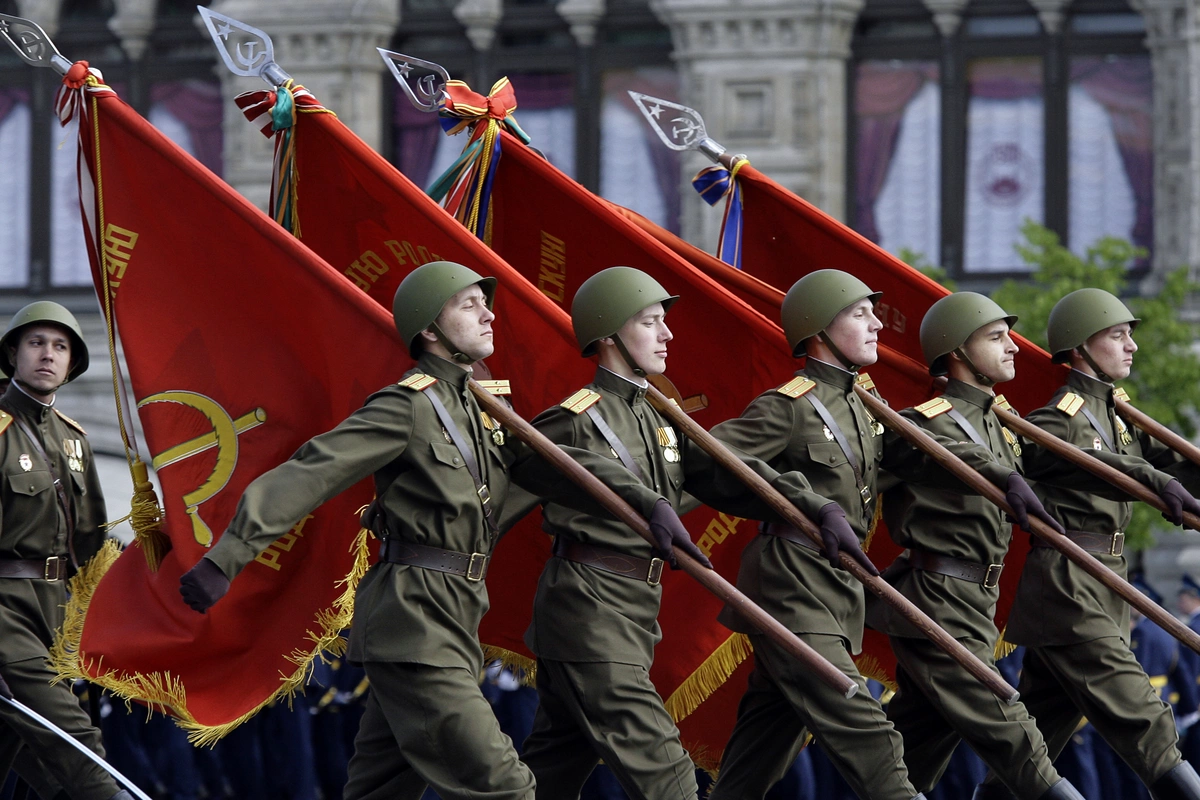
Dima Korotayev/Epsilon/Getty Images
Every year, Moscow’s Red Square transforms into a stage for one of Russia’s most celebrated traditions: Victory Day, an event which marks the Soviet Union’s triumph over Nazi Germany in World War II. Yet, as tanks roll through the cobblestone streets and military bands echo under the Kremlin walls, the occasion feels more heavily laden with geopolitical undertones than historical reminiscence these days.
Against the backdrop of ongoing conflicts and shifting alliances, the presence of Central Asian leaders at this year’s event speaks to the region’s delicate relationship with the Russian Federation, The Caspian Post reports citing The Times of Central Asia.
The question remains: amidst the pomp and circumstance, is there much for Vladimir Putin to celebrate?
Central Asia’s Careful Balancing Act
The attendance of Central Asian leaders at the Victory Day parade is a striking show of diplomatic choreography. On the surface, their presence will underscore the shared historical legacy of the Soviet era, when the sacrifices of the Central Asian republics contributed to the Allied victory in the Second World War.
However, a more pragmatic lens reveals a balancing act that defines the region’s foreign policy. The region finds itself at the crossroads of global powers vying for influence in Central Asia. While Moscow leans on historical ties and cultural commonalities to retain its sway, Beijing’s economic clout continues to reshape the region’s trade networks and infrastructure projects. Meanwhile, as the inaugural EU-Central Asia Summit attests to, the European Union is eager to expand its reach, whilst hungry for Rare Earth Elements in which the region is rich, the U.S. is waiting in the wings.
For Central Asian leaders, participating in Victory Day celebrations signals a nod to Russia’s historic role but also keeps the door open for economic and security cooperation. Amidst the shifting architecture of global politics, their diplomatic strategy remains one of pragmatism, seeking benefits from multiple partners while avoiding any over-alignment.
What Does Russia Gain from the Optics?
The presence of 29 leaders from across the globe - including Chinese President Xi Jinping - offers Moscow valuable optics at a time when its international relationships face significant strain. Last year, only nine attended. Isolated by Western sanctions over the invasion of Ukraine and with much of the world’s media painting Russia as cut off from the global stage, the impression of a united front with Central Asia helps the Kremlin portray the opposite.
Victory Day, therefore, becomes a geopolitical tool, with the attendance of Central Asian leaders enabling Putin to send a message of shared unity within Russia’s historical sphere of influence. It tells both domestic and international audiences that Moscow retains significant allies, reinforcing the image of resilience despite ongoing challenges.
How Much Does Moscow Truly Celebrate?
The Victory Day parade is an event that is watched by an estimated three-quarters of the Russian public, drumming up patriotism as the state seeks to become the custodian of collective memory. Behind the spectacle, however, signs of disquiet are proving hard to ignore. Russia’s invasion of Ukraine has disrupted trade and migration flows central to its ties. The war has also starkly exposed the limits of Moscow’s power. Sanctions have weakened its economy, leaving Central Asia less dependent on Russian investments. Meanwhile, China continues to rise as the dominant force in the region’s economic development, chipping away at Russia’s influence.
Even as Central Asian leaders attend events in Moscow, therefore, they tread with caution. Kazakhstan, for example, has refused to recognize Russia’s annexation of Ukrainian territories. President Tokayev has voiced his support for Ukraine’s territorial integrity, making it clear that sovereignty and territorial integrity are also paramount concern for Kazakhstan. This serves to illustrate how the purported unity displayed at Victory Day parades is complicated. While maintaining relations with Russia remains important, Central Asian countries do not want to be drawn into Moscow’s geopolitical confrontations.
Central Asia’s Ascendant Voice
In the so-called ‘New Great Game,’ Central Asian nations find themselves in a stronger position than before. Their ability to engage both Russia and China while also exploring relationships with the U.S., Turkey, and the European Union, grants them leverage. Leaders in the region are increasingly pushing back when their sovereignty is questioned, as seen in Kazakhstan’s refusal to accede to all of Russia’s demands related to sanctions enforcement and its cautious neutrality over the Ukraine war. A bold stance was also taken by Uzbekistan in its summoning of the Russian Ambassador over annexation comments made by the far right in Moscow.
The Real Takeaway from Victory Day
For Central Asia, Victory Day celebrations in Moscow are less about solidarity with Russia and more about safeguarding their interests. By attending, leaders strike a delicate balance, acknowledging a shared history without endorsing Moscow’s current actions on the world stage. This calculated diplomacy allows them to ensure stability in their relationships with Russia while continuing to expand alliances with other global powers.
For Vladimir Putin, this cautious allegiance may not be a cause for celebration, but it is much needed. Russia’s influence in Central Asia has not completely waned, even if the region’s priorities have shifted. So, while Moscow puts on its grand spectacle, the broader narrative reveals a world where former Soviet republics are increasingly finding their voice, even as they stand in Red Square.
Share on social media